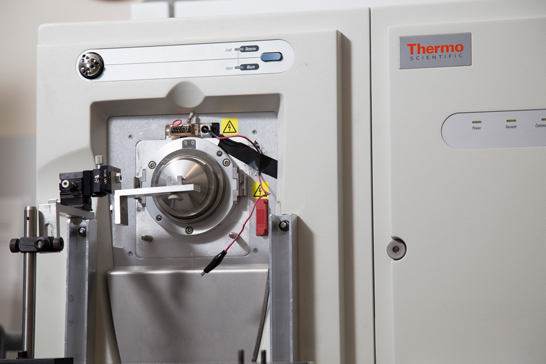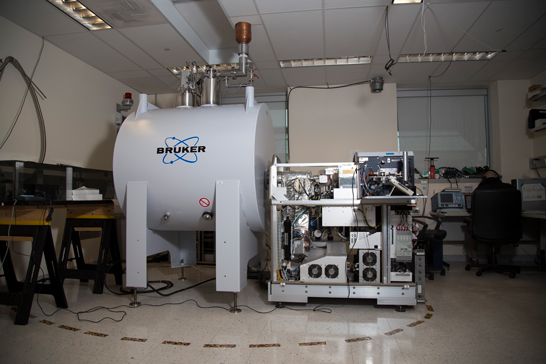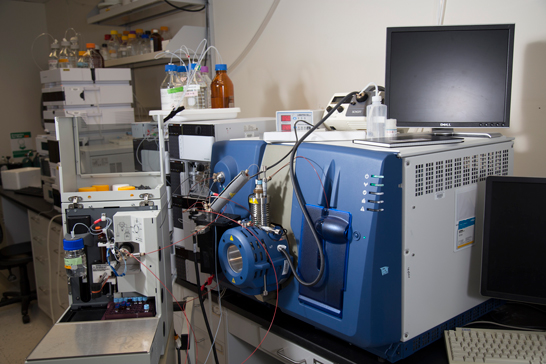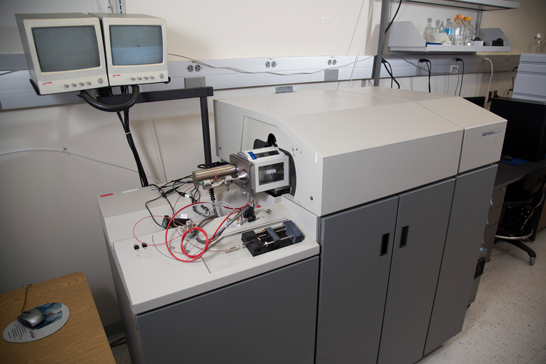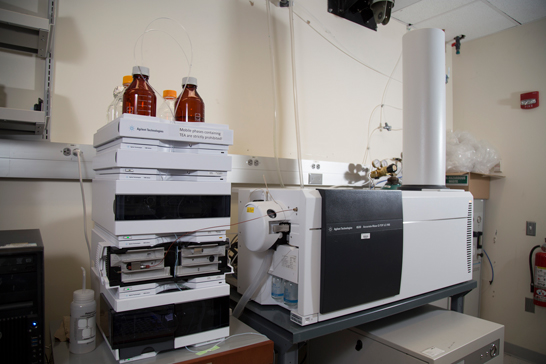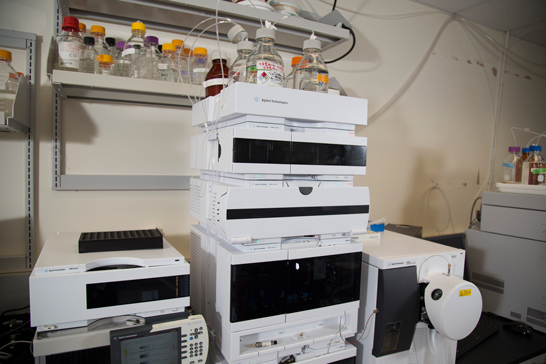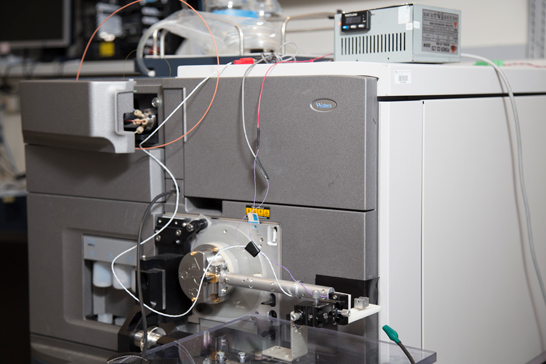The RNA Epitranscriptomics and Proteomics Resources (REPR) was created by consolidating the RNA analysis and proteomics capabilities existing at the University at Albany. This specialized resource offers an extensive range of state-of-the-art mass spectrometry instrumentation and know-how. The mission is to capitalize on the extensive expertise in the analysis of RNA, RNA modifications, and proteins involved in RNA metabolism/regulation to benefit both internal and external investigators interested in these types of topics.
The resource supports also projects involving the analysis of a wide range of biomolecules, metabolites, and small synthetic molecules. In addition to providing full-service analysis, REPR welcomes the opportunity to enter full-fledged partnerships that may involve extensive consulting on experimental design, sample preparation and data interpretation, as well as whole project development and grant writing contributions.
To inquire on how we can best help you, please email us at [email protected].
1400 Washington Avenue
Albany, NY 12222
United States







